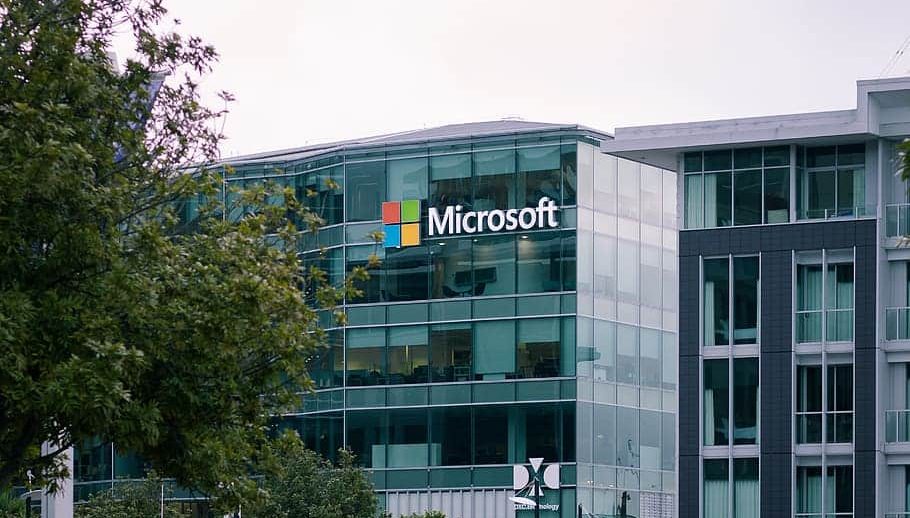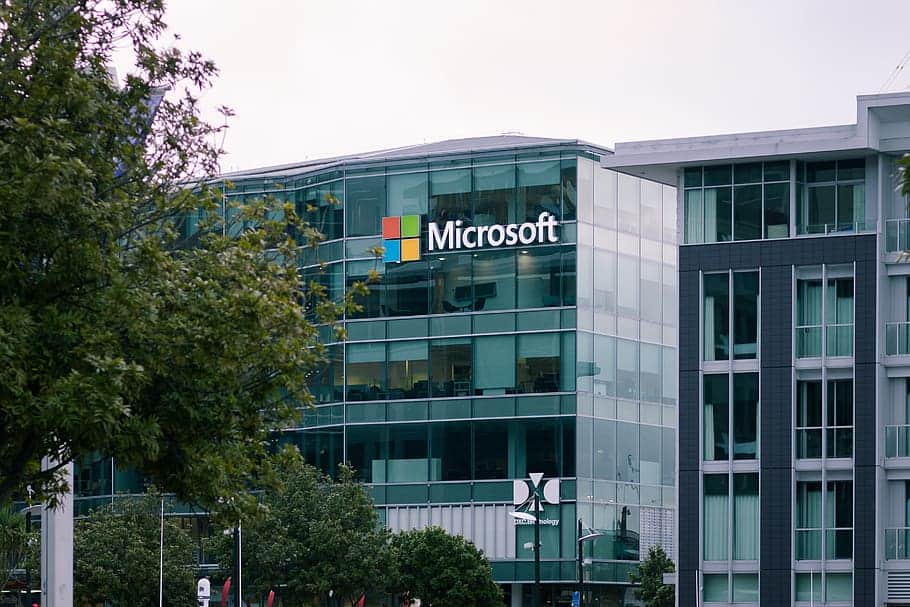You should own Microsoft stock, this investor says

 They say there’s no such thing as a sure bet and while that might be true, the way forward for Microsoft (Microsoft Stock Quote, Chart, News, Analysts, Financials NASDAQ:MSFT) looks solid enough that you should have it in your portfolio. That’s according to portfolio manager David Fingold of Dynamic Funds who says Microsoft’s valuation isn’t a problem.
They say there’s no such thing as a sure bet and while that might be true, the way forward for Microsoft (Microsoft Stock Quote, Chart, News, Analysts, Financials NASDAQ:MSFT) looks solid enough that you should have it in your portfolio. That’s according to portfolio manager David Fingold of Dynamic Funds who says Microsoft’s valuation isn’t a problem.
As Big Tech looks to shake off its February and March blahs, stocks like Microsoft are hitting new highs this week, as the long-standing software giant knocks on the $2-trillion door in terms of market capitalization.
The tech-heavy Nasdaq finished March barely up a percentage point for the previous two months, a contrast to the broader S&P 500 Index which plowed ahead by almost seven per cent over the same time span.
But tech looks to be picking up steam here in April, where both Microsoft and Apple are already up a full ten per cent, Amazon is up nine per cent, Facebook is up five per cent and Alphabet is up almost 11 per cent.
In the case of Microsoft, those gains shouldn’t scare you off, says Fingold.
“This is a company which basically went through a complete transformation and it’s in the second act,” said Fingold, senior portfolio manager at Dynamic, who spoke to BNN Bloomberg on Thursday.
“Originally, it was a company based upon PC software and it had run its course. And then they made the transition to a company that’s based upon cloud computing and gaming,” Fingold said. “There are very few gaming platforms and this is a scale business, and in cloud computing, I really feel that they displaced Oracle as the relational database of choice for small to medium-sized software developers who are looking to use a relational database as the engine underlying their software.”
The ongoing digital transformation is floating boats across the tech sector, and that definitely includes Microsoft, which in its most recent quarter saw Azure beat analysts’ estimates at revenue growth of 50 per cent year-over-year versus the expected 42-per-cent growth. Overall, revenue grew to $43.08 billion, up 17 per cent, while net income drove ahead 33 per cent to $15.5 billion, with EPS coming in at $2.03 per share compared to the Street’s estimate at $1.64 per share. (All figures in US dollars.)
“What we have witnessed over the past year is the dawn of a second wave of digital transformation sweeping every company and every industry,” said CEO Satya Nadella in the company’s fiscal second quarter press release in January.
“Building their own digital capability is the new currency driving every organization’s resilience and growth. Microsoft is powering this shift with the world’s largest and most comprehensive cloud platform,” he said.
Fingold said investors looking at a Microsoft hitting all-time highs shouldn’t be worried, saying that not only is it wise to let your winners run, the alternative to owning Microsoft — namely, betting on a smaller, less proven software company — doesn’t make sense.
“When we get to the valuation that’s the part that’s very important, because we’re not just selling software: this is not just about Microsoft Windows and Microsoft Office. This is about selling cloud computing services to corporates and the software providers. Microsoft is literally creating a utility,” Fingold said.
“It’s like Amazon Web Services, where you have these recurring revenues where people literally have to pay or shut their businesses down. The margin on cloud computing is usually much higher than the margins associated with selling software, so over time, margins and free cash flow generation for Microsoft are going to go up,” he said.
“That’s why I’m not concerned about valuation because I’d really rather pay the price for Microsoft and have a growing business with margins rising over time than try to speculate about a cheaper software company that has not made the transition to the cloud and may not exist in ten years,” Fingold said.
Wedbush analyst Daniel Ives agrees with Fingold’s idea that Azure is flexing its muscles right now. Ives gave Microsoft a “Buy” rating and $300 target price in late March, saying that Microsoft is picking up ground in cloud computing against Amazon’s AWS.
Ives says the transition in Microsoft Office in both the consumer and enterprise markets will add tailwinds over the next few years, while the company positions both Azure and Office to become “the cloud backbone and artery.”
“With this highest IT priority front and centre, we believe 85-90 per cent of these cloud deployments have already been green lighted by CIOs and healthy cloud budgets already in place for 2021, with [Microsoft] firmly positioned to gain more market share versus AWS in this cloud arms race,” Ives said.



